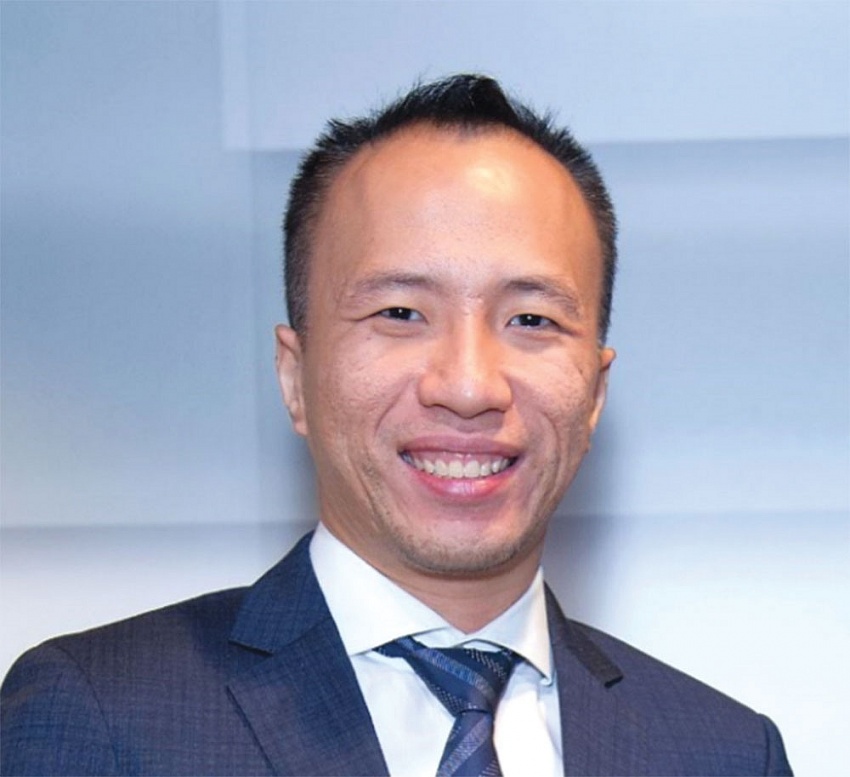Regional collaborations can improve prospects for ESG
Environmental, social, and governance (ESG) criteria are relatively new for Vietnamese groups, especially small- and medium-sized enterprises (SMEs). How do you assess their attention to it?
 |
| Benjamin Soh, founder and managing director of STACS |
Vietnamese companies are increasingly aware of the importance of ESG, with 80 per cent having made related commitments or plans, according to a PwC report. However, there is still a gap between ambition and action, with many companies lacking the resources and expertise to implement such commitments effectively.
Senior leadership in the country needs to be fully engaged in driving ESG commitments, and that means tracking both targets and metrics, which will be more important than ever for accountability.
It’s important for Vietnamese businesses, as well as regulators, to ensure they are keeping up with international standards, with scopes 1 and 2 already well integrated into business reporting in Europe and the US, both key export markets for Vietnam.
Scope 1 refers to emissions that originate directly from sources owned or controlled by an organisation, which encompasses emissions from activities like fuel combustion for heating, power generation, and transportation. Scope 2 emissions, on the other hand, are indirect emissions resulting from the production of purchased energy, such as electricity, steam, heat, and cooling.
Scope 3 emissions are indirect emissions that occur in the value chain of a company, including both upstream and downstream emissions, which are now included by the International Sustainability Standards Board in their guidelines.
It is this third category that is often the largest source of emissions for companies in Vietnam and elsewhere, and they can be difficult and costly to measure. The decision to introduce relief for Scope 3 disclosures was made in response to concerns from companies about data availability and quality challenges associated with measuring them.
In a recent report by PwC and NUS Business School, the top 50 listed companies in Asia-Pacific are struggling to disclose their Scope 3 emissions, with half including these figures in their reporting and only 5 per cent doing a thorough disclosure.
As you can imagine, if the top listed companies in the region are struggling with the ESG transition, it’s understandable that Vietnamese companies are even more so, and this is where we want to help.
Other countries are also highlighting ESG. How can this open up new opportunities for Vietnamese businesses?
There are clear challenges for Vietnam on the ESG front, including lack of resources and expertise, lack of clear guidance from regulators, low levels of awareness among stakeholders, and the lack of a well-established ESG culture.
I believe regional collaboration is key across ASEAN, and that is why we are keen to work with Vietnamese companies and government agencies as a Singaporean company to ensure the rising ESG tide lifts all the boats and isn’t zero-sum.
While there are already a lot of government, regulator, and central bank-led ESG initiatives in Vietnam and other regional markets, everyone in the economy needs to play a role in bringing it all together, which means the private sector stepping up.
The result will look something like this: a Vietnamese SME selling to a large corporation, being financed by the financial sector, with everything interlinked by verifiable, transparent ESG data to reach that decarbonised future.
If Vietnam can manage this transition effectively, it stands to benefit from more investment, improved long-term performance, reduced risk, competitive advantages, and a positive reputation.
What do you think about the need for reviewing the performance of ESG practices?
I’m invariably keen to stress the importance of approaching decarbonisation as a transition rather than a simple on-off switch - between brown and green there are 50 shades.
When we talk about decarbonisation, one other word we also must keep in mind is transition. We are hearing about the transition of energy, the transition of business processes or practices, and the last part which is the transition of disclosure and data.
In the short term, data disclosure for environmental practices will become more and more structured, just like financial accounting has been. Many decades ago, the financial world may not have been as mature, but today everybody reporting financial statements has well-structured ways of doing it.
These universal standards, software, and consultants in the traditional accounting space represent the end of a long transition process. ESG accounting and disclosures are not yet there, but the transition is well underway.
The Ministry of Planning and Investment is building a toolkit to guide businesses in self-assessment. Can you share some ideas for building a measure for the performance of ESG practices in every business?
As a first step, I would encourage every Vietnamese SME and listed company to work with existing technology platforms who can help them get started on measuring and tracking their objectives and compliance.
Beyond that, my broad recommendations for the economy as a whole cover a range of fronts, from the need for Vietnamese companies to develop clear strategies that are aligned with business goals, to building strong governance structures to support these commitments and new values.
Companies should also invest in related training and education for their employees, and be thoughtful in communicating these goals and performance updates to key stakeholders, all the while working closely with regulators wherever possible to develop clear guidance on ESG reporting.
 | ESG enabling real estate businesses to attain funds According to the Foreign Investment Agency under the Ministry of Planning and Investment, foreign direct investment in the real estate sector increased by $1.85 billion in 2022, a growth of more than 70 per cent compared to 2021, and ranked second among sectors attracting such funding with capital of over $4.45 billion, or 16.1 per cent. |
 | Accompanying customers on ESG journey Nguyen Thuy Hanh, deputy general director and head of Commercial, Corporate and Institutional Banking at Standard Chartered Vietnam, digs into the importance of environmental, social, and governance (ESG) for business development, and how Standard Chartered Vietnam has supported its customers on the journey. |
What the stars mean:
★ Poor ★ ★ Promising ★★★ Good ★★★★ Very good ★★★★★ Exceptional
Related Contents
Latest News
More News
- Citi economists project robust Vietnam economic growth in 2026 (February 14, 2026 | 18:00)
- Sustaining high growth must be balanced in stable manner (February 14, 2026 | 09:00)
- From 5G to 6G: how AI is shaping Vietnam’s path to digital leadership (February 13, 2026 | 10:59)
- Cooperation must align with Vietnam’s long-term ambitions (February 13, 2026 | 09:00)
- Need-to-know aspects ahead of AI law (February 13, 2026 | 08:00)
- Legalities to early operations for Vietnam’s IFC (February 11, 2026 | 12:17)
- Foreign-language trademarks gain traction in Vietnam (February 06, 2026 | 09:26)
- Offshore structuring and the Singapore holding route (February 02, 2026 | 10:39)
- Vietnam enters new development era: Russian scholar (January 25, 2026 | 10:08)
- 14th National Party Congress marks new era, expands Vietnam’s global role: Australian scholar (January 25, 2026 | 09:54)

 Tag:
Tag:



















 Mobile Version
Mobile Version